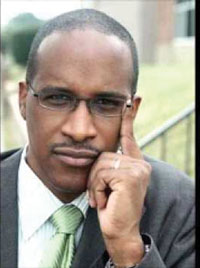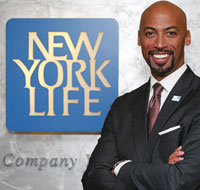

Black colleges still waiting: Trump’s promise
Written by Andrew Kreighbaum
Trump promised best effort ever for HBCUs but has left top position at key advocacy office unfilled for longer than any previous administration did. And his pledge to move office to White House remains unfulfilled.
The White House today marked a milestone in leadership on historically Black colleges and universities, although probably not the kind President Trump had in mind when he promised in February that support of those institutions would be an “absolute priority.”
A new administration hasn’t made it to August without having named a leader of the White House Initiative on Historically Black Colleges and Universities since that office was launched under President Carter. But Trump has not named a leader for the office.
The initiative is a modestly staffed administrative unit in the Department of Education — and the administration has been slow to fill politically appointed positions throughout the federal government. But this position was the focus of a heavily touted executive order on HBCUs that Trump signed in February after hosting leaders of historically Black colleges in the Oval Office. And naming an executive director for the initiative and making progress on moving it into the White House — the only concrete promise in that executive order — would have been a start toward his promise to outdo previous administrations.
Walter Kimbrough, president of Dillard University, a private historically Black college in New Orleans, said even though the initiative doesn’t wield serious power beyond the ability to convene meetings with various federal agencies, installing new leadership would have value in demonstrating the administration’s commitment to Historically Black Colleges (HBCUs).
“That becomes the next step in saying HBCUs are important,” he said.
Kimbrough said he couldn’t assign one signature policy achievement to the work of the initiative. Rather, it provides a voice advocating for the interests of HBCUs within the administration.
“I look at it as another opportunity to share the message of HBCUs as well as to have someone, in a way, lobbying for HBCUs every day within the federal government. So I think that’s a tremendous opportunity,” he said.
The office hasn’t had consistent long-term leadership since John Sylvanus Wilson, President Obama’s first executive director appointee, left to become president of Morehouse University. Since Wilson’s departure in 2012, three different executive directors have over-seen the initiative.
But Kimbrough said the initiative has clear opportunities to find “wins” for HBCUs. Among them, he said, the executive director could push for the extension of a special Title III aid program for HBCUs launched under George W. Bush and extended under Barack Obama.
That might help a narrative that has become extremely negative for the White House despite early overtures to HBCUs. In May, Trump suggested that a key financing program for HBCUs might be unconstitutional before spokesmen quickly backtracked. Education Secretary Betsy DeVos months before drew heavy backlash when she referred to HBCUs, which were originally established because African Americans were denied access to higher education, as “pioneers” of school choice. And when DeVos gave the commencement address to graduates of Bethune-Cookman University (B-CU) in May, students loudly booed and jeered throughout her speech. Many in media reports cited those comments from DeVos on HBCUs as well as cuts to higher ed programs that serve Black students in the proposed Department of Education budget.
The Thurgood Marshall College Fund, which represents the country’s public HBCUs, has pursued a strategy of heavy outreach to the Trump administration and provided input on the executive order. Thurgood Marshall President and CEO Johnny C. Taylor Jr., who declined to comment for this article, has argued that partnering with the administration helped to preserve dedicated funding for HBCUs in the White House even as massive cuts were proposed for programs elsewhere in the federal government. And Taylor has argued the relocation of the HBCUs initiative to the White House is a long sought for and significant win for Black colleges.
But Trump has passed on speaking to major African American organizations like the NAACP and the Urban League. And on top of every controversy involving Black colleges in his administration is the fact that Trump is a historically un-popular president with African Americans. Kimbrough said the White House would do well to select a leader for the initiative with unquestionable credentials among the HBCUs community who could hit the ground running.
Leonard Haynes, who led the initiative under President George W. Bush, said the fact that it would be relocated to the White House has implications for identifying the right person for the job. He said the leader of the initiative should have excellent interpersonal skills and should understand how the resources of federal agencies can be leveraged to benefit HBCUs. The relocation of the initiative would also have implications for the executive director’s dealings with federal agencies, Haynes said.
“When I was the director, I would say, ‘I’m coming from the Department of Education,’” he said. “Now, whoever the executive director is says, ‘I’m coming from the White House,’ and that gets you immediate attention.”
Haynes worked with the White House in crafting the February executive order and has had discussions with the administration about selecting an executive director. While rumored to be under consideration for the job, he said he was not interested in reprising that role himself. Whoever is named, Haynes said, should put together a comprehensive plan for their first 100 days and consult the leaders of HBCUs across the country to figure out a handful of key priorities they would like to see the initiative address.
A White House spokesman said the administration has several finalists for the position but no decision has been made. The relocation of the initiative from the Department of Education would take place after the new executive director is installed.
Kim Hunter Reed, the executive director of the Colorado Department of Higher Education, said the power of the initiative comes through its ability to convene various federal offices.
“Our HBCUs have tremendous value,” she said. “The leadership in that office has the opportunity to really build relationships and resources to accelerate important work.”
One of the biggest opportunities for that work every year comes through the HBCU Week





Be the first to comment